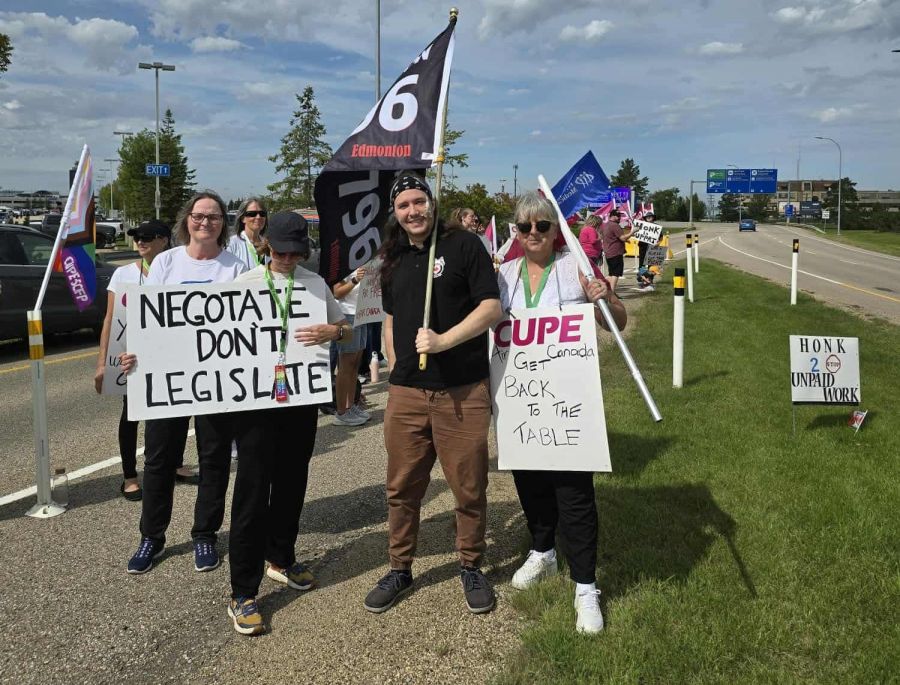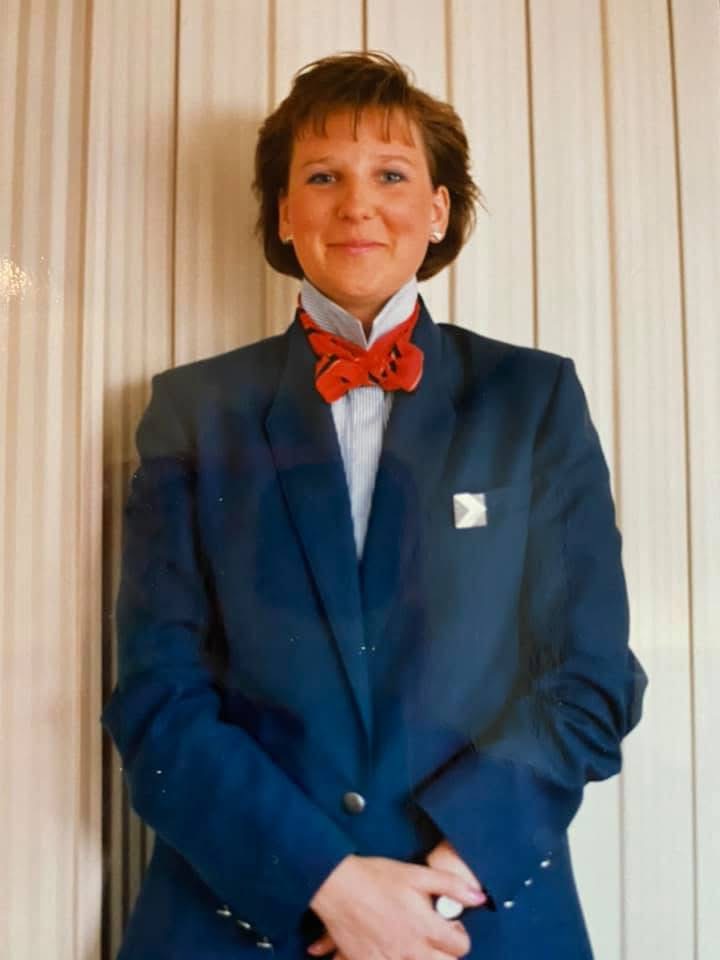Search KamloopsBCNow
- Food & Drink
- Biz+Tech
- Columns
- Travel & Lifestyle
- Arts & Culture
- News & City Info
- Events
- Webcams
- Advertise
- Real Estate
- Contests
- Best Of the city
- Faces of Kamloops
- More
- Real Estate Listings
- Subscribe
- Contact
It was risky, admits former Air Canada flight attendant and former local union president Sherry Hansen-Smith.
"You never really know when you go on the picket line how it's going to end," said Hansen-Smith.
"When the return-to-work order came in on Saturday (from federal Jobs Minister Patty Hajdu and the Canada Industrial Relations Board) and the flight attendants defied it, it was precedent-setting. I'm very impressed and proud of the stand the flight attendants took."

It's now widely believed that if the 10,000 flight attendants had complied with the back-to-work order and the dispute had gone to binding arbitration the contentious issue of 'unpaid work' would never have been addressed.
"No one wants binding arbitration because no one gets what they want out of it," said Hansen-Smith.
Instead, flight attendants stood their ground, remained on strike and only agreed to return to work when the federal government effectively stood down and allowed the Canadian Union of Public Employees and Air Canada to return to the bargaining table.
With the help of a mediator, the two sides quickly reached a tentative deal that the union hailed as 'the end of unpaid work' by the union.


Unpaid work is a norm in the passenger airline industry.
Flight attendants only get paid while the plane is moving -- effectively, the time it rolls away from the gate, takes off, is in the air, lands and makes its way to the jetway for disembarkation.
Flight attendants don't get paid for the hour and a half before the flight when they show up at the airport, clear security, have a crew briefing, do safety checks on the airplane, greet boarding passengers, help unaccompanied minors and assist with seating and luggage.
Same unpaid scenario upon landing for goodbyes, if a medical emergency to be dealt with, passengers need help off the plane or unaccompanied minors have to be delivered to their caregivers.
Since unpaid work is the standard in the airline industry for flight attendants, the new Air Canada contract paying previously unpaid work is hailed as ground-breaking.
From now on, unions fighting for flight attendants at other airlines will likely demand contracts that cover pay for previously unpaid work.
.jpg)
Hansen-Smith was a flight attendant from 1987 until she retired in 2021 for Pacific Western Airlines, which merged into Canadian Airlines, which merged into Air Canada.
She was based in Edmonton, then Vancouver and then Calgary and was president of Canadian Union of Public Employees local 4012 representing flight attendants from 1993 to 2001.
While retired, Hansen-Smith showed up at Edmonton airport to picket with striking flight attendants in a show of solidarity and support.
In retirement, Hansen-Smith still does a lot of travelling -- usually flying with Air Canada.
"I still do have loyalty to Air Canada," she said.
"It was my employer for my whole career and I want to support Canadian and my previous employer."
NowMedia Group reached out to the office of federal Jobs Minister Patty Hajdu to see if, in the aftermath of the strike, invoking Section 107 of the Canada Labour Code to order flight attendants back to work was warranted.
We also wanted to know if Hajdu still wants an investigation into unpaid work.
We did hear back from Hajdu's office with an email that included a bunch of links to Hajdu's social media posts on X over the past few days and news releases from her ministry.
The gist was that despite invoking Section 107, Hajdu is happy Air Canada and its flight attendants were able to come to a negotiated settlement.
According to Blacklock's Reporter, a news site that covers Parliament, Hajdu's Section 7 back-to-work order came just three hours into the strike.
The probe into unpaid work is underway and expected to take about six weeks, at which time the ministry will report back to the public.
Hajdu has said: "Nobody should work for free."
Not just the Canadian Union of Public Employees, but all unions criticized the back-to-work order under Section 107 as unconstitutional and unfair government control over unionized workers, strikes and walkouts.
The flight attendants defying the back-to-work order may also be precedent-setting in toppling Section 107.
Section 107 has been around for years, but the federal government really didn't start using it until 2024 when it used it to pressure WestJet engineers into binding arbitration, end two potential railway strikes, stop labour disruptions at the ports of Vancouver and Montreal and postpone a Canada Post strike.
NowMedia Group has also covered the latest on flights resuming after the strike and the picket line outside Kelowna International Airport here and here.